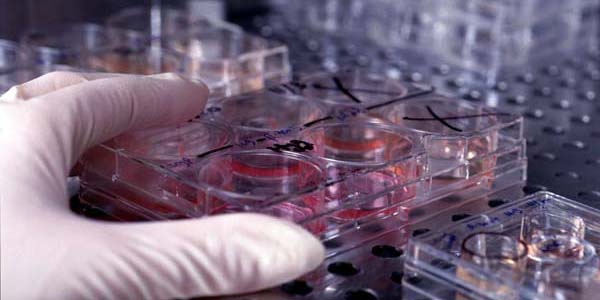
Photo by Jeff Miller/UW-Madison
The University of Wisconsin announced this week that a team of engineers has created a more efficient process for creating synthetic neural stem cells for use in central nervous system research.
According to a release, the team–which included Randolph Ashton, an assistant professor of biomedical engineering–used two chemical cocktails to culture stem cells instead of mouse embryonic fibroblasts (MEFs), which require a high level of expertise to prepare. In addition, the chemical mixtures help to ensure consistency.
“(Our process) is the simplest, fastest and most efficient way to generate these types of cells,” Ashton said in a statement.
The team’s research was published in the journal Stem Cells.

